- Home
- Alex Scarrow
Gates of Rome tr-5
Gates of Rome tr-5 Read online
Gates of Rome
( Time riders - 5 )
Alex Scarrow
Alex Scarrow
Gates of Rome
PROLOGUE
10 August 2001, Brooklyn
Joseph Olivera gasped, air huffed in and out of his lungs in total darkness. The noise of his rasping breath bounced back at him from hard walls somewhere off in the black. He tried to calm himself. Steady his nerves.
You knew what it was going to be like.
Yes. He’d had that explained: the sensation of falling, the milky nothingness, the light touch of energy crawling over your skin like the probing, curious fingers of a pickpocket. Still, even though he’d mentally prepared for it, forewarned, Olivera had been cautioned by Waldstein that the first time was the hardest.
But he hadn’t expected this. Pitch black.
‘Anyone th-there?’
He could hear the drip of water somewhere, possibly from a low ceiling. And, faintly, a quiet rumble that increased in volume as it passed overhead and then finally faded to nothing.
‘Hello?’
Just then another noise. A metallic rattle from behind him. Joseph turned towards it and saw a horizontal sliver of light appear. It widened, accompanied by the jangle of a chain, and Joseph recognized it as the bottom of some shutter door. He saw a pair of feet outside, cobblestones, a muted grey of diffused light.
‘Hello?’
The feet shifted, a figure ducked down and looked under the shutter door. Joseph saw a paunchy middle-aged man with a beard and glasses, wearing shabby corduroy trousers and a green woollen cardigan with leather elbow patches. ‘Hello?’
Joseph squatted down so the light from outside could pick out his face. ‘Is this the right place?’
The man with the beard chuckled. ‘Ahhh… you must be our new recruit.’ He ducked under the shutter, straightened up inside and walked to the side of the shutter, patting in the darkness until his fingers found a switch.
A fluorescent light fizzed on above Joseph. He could see now he was in some brick archway. It smelled of damp cement and stale urine. In one corner he could see a pile of loops of electrical flex. Beside that, a dozen cardboard boxes that had the images of ancient-looking computers printed on the side. Early twenty-first-century bricks of clunky technology.
‘This… this isn’t the place, is it?’ asked Joseph.
The man smiled and crossed the pitted dirty floor towards him, his feet crackling across shards of broken glass. ‘This is it.’ He offered his hand. ‘I’m Frasier Griggs by the way.’
‘Joseph Olivera,’ he replied.
‘I agree it doesn’t look much at the moment. Mr Waldstein, I presume, told you we’ve only just started setting up things in here?’
Joseph nodded. ‘But I… I thought…’
‘You thought it would be something grander?’
‘Yes.’
Frasier laughed again. ‘It’s all that’s needed.’ He looked around. ‘Good choice, I’d say. Nice and discreet. I don’t think it’s been occupied in years.’ He kicked an empty glass bottle aside. It skittered across a carpet of grit and rat droppings. ‘Unless you count vagrants and drug addicts, that is.’
Joseph glanced at the cobblestones outside. ‘This is really 2001? I’ve really travelled back over half a century?’
‘Oh quite, yes. August the tenth, 2001 to be precise.’ Frasier spoke with an almost theatrical accent, what used to be called ‘British’ before that small nation vanished into the Euro-block.
He walked towards the shutter and ducked down to look outside. Frasier followed him over, squatting down beside him. ‘This is Brooklyn. Tell me, Joseph. You ever see pictures of Brooklyn before they abandoned it to the flood waters?’
Joseph shook his head. He only knew the outskirts of this once-fine city as a maze of waterlogged streets, collapsed rooftops sprouting weeds and struggling saplings.
‘Quite characterful and vibrant was Brooklyn.’ Frasier gazed at the graffiti-covered brick wall opposite, and above it a mixed urban skyline of cranes, factory roofs and warehouse apartments. He sighed. ‘I used to collect priceless antique CDs from about this time. Marvellous stuff they used to call “hip hop”. Big Daddy K? MC Kushee? Ever heard of those composers?’
Joseph shook his head.
‘Ah well. It’s only old farts like me listen to that sort of thing now.’ Frasier nodded at the scene outside. ‘Thirty years from now all this will be gone. It’ll be nothing but a drowning ghost town. Abandoned ruins. Left to rot. Pity.’
Above them was a warm blue, cloudless sky, criss-crossed with the vapour trails of distant air traffic.
‘Anyway, Mr Waldstein has already given you your brief, I presume?’
Joseph nodded.
‘We’re sourcing as much of the equipment components as we can from the present. It’s safer that way. The less of a footprint we leave from our time, the better.’
Joseph had noted the boxes of desktop computers. ‘Are those old machines powerful enough to — ?’
‘Certainly. I’ll have to tinker with the network so their CPUs synchronize. And I’ll strip out that stone-age operating system and replace it with W.G. Systems software. Should be fine, though.’
Joseph gazed across the East River at Manhattan.
‘Quite a sight, isn’t it?’ said Frasier. ‘This really was a beautiful city back in its time.’
‘Yes.’
They listened to the wail of a distant police siren, the honk of the East River ferry on its way down to Governor’s Island, the faint boom of a passing car hi-fi, the gentle whup-whup of a helicopter high above.
Joseph found himself sharing Frasier’s dewy-eyed wonder.
Everything seems so much more alive.
This was a mankind full of passion and energy. From here the future looked limitless, the possibilities endless. This is what the world looked like when it still had a hope. Joseph’s breath fluttered. It was intoxicating.
‘Well now… this field office of Mr Waldstein’s won’t sort itself out if we just sit here. There’s a lot to do.’ Frasier stood up and kicked a discarded McDonald’s carton out of the archway and across the cobblestone alley. ‘Is Mr Waldstein joining us today?’
‘Yes… he s-s-said…’ Joseph worked at containing his stutter. ‘He said he’d be along shortly.’
‘Good,’ said Frasier. ‘Because I need to ask him where he wants me to set up the displacement rack. Going to need to check the wiring for tolerance. And of course where to put the back-up generator.’
‘Where will I be setting up my equipment?’
Frasier pointed into the gloom of the archway. ‘It’s in the back room. There’s another room. See that sliding door? Half a dozen Gen-Inc-5H bio-growtubes from our Salt Lake Genetic Research facility, and several hundred gallons of that disgusting growth solution. It wasn’t easy beaming that lot through, I can tell you.’
‘Is it assembled already?’
‘No! That’s your job. Anything else you need, except the foetuses of course, you’re going to need to source locally.’
‘Uh, right.’
Frasier suddenly grinned broadly, his eyes wide behind the glint of his lenses. ‘Quite something, this project of his, isn’t it? Guardians of history and all that!’
‘Yes… yes, it is.’
‘You know, only three people in the entire history of humankind have actually travelled through time: Mr Waldstein, myself… and now you. Just think about it. More people have walked upon the moon than done what you’ve just done.’
Joseph nodded, grinning. Frasier’s excitement was wholly infectious.
‘Lots to do, Joseph old chap. Lots to do. But first… how do you fancy a coffee? I spotted a rather nice coff
ee shop nearby.’
‘ Real coffee?’
‘Good grief, yes! None of that awful vat-grown synthi-soya rubbish.’ He patted Joseph affectionately on the shoulder. ‘Give you a chance to see a little bit more of Brooklyn before we knuckle down to work. How about that?’
‘A coffee would be nice.’
Frasier led Joseph back outside, worked the shutter door down to the ground with some difficulty and secured it with its rusty padlock. ‘That’s stiff. I might see if I can get the winch motor working. Don’t want to be hefting that up and down each time we step outside, do we?’
The morning sun sparkled across the East River, spears of brilliant dappled light that made Joseph’s eyes moist. The inverted reflections of Manhattan’s proud skyscrapers shuffled in the wake of the passing ferry and above them a commuter train rattled across the Williamsburg Bridge towards Manhattan.
Beautiful. Quite beautiful.
He noticed Frasier enjoying the same view. ‘Oh, how rude of me!’ he said presently, offering Joseph a comic salute. ‘I suppose I ought to officially welcome you to our little “agency”.’
Joseph self-consciously returned the gesture, feeling a thrum of growing excitement course through his body.
What an incredible project.
CHAPTER 1
2001, New York Monday (time cycle 77)
Something’s wrong. I know it. I think there’s something big going on we don’t know about. Something Foster should’ve told us and didn’t. Maybe he really wanted to, but couldn’t. Wasn’t allowed to. Maybe that’s why he left us?
Sal put down her pen and looked around the laundromat. Just like it always was at this time on a Monday morning, it was empty. She was the only customer there, sitting on one of the row of plastic chairs facing a grubby window. She watched a removal truck outside the window trying to squeeze past a kerb-parked yellow cab, the drivers of both vehicles winding down their windows and barking abuse at each other.
Men. Always so aggressive. Sal wondered for a moment what a world free of testosterone might be like. Surely a better place without men beating their chests and acting like apes.
She looked down at her notebook again. That thing. That stuffed toy. The bear. Somehow that’s at the heart of everything. I’m sure of it.
The man that came through, that poor, twisted mess that was once a human being, she was sure he’d been trying to tell her something about the blue bear as he died. Something for her ears alone. She wondered how a stuffed toy, a threadbare, scruffy-looking one at that, could ‘mean’ anything to anyone — except comfort for some child.
She scribbled again in her diary. And then there’s Liam’s tunic.
Sal was certain of one thing: that she could trust her own eyes, what she actually saw. She’d taken a close look again at the tunic that was hanging in a closet just outside the nook where their bunk beds were. The clothes they’d all been wearing the day they’d arrived in the archway hung in there. No longer worn because they were so precious, a last link to the lives they’d lived before this. Before becoming TimeRiders.
She’d unhooked Liam’s tunic, the very same one he’d arrived in the night the Titanic had gone down. The tunic, complete with two rows of brass buttons and the White Star Line’s star symbol on its purple collar. And yes… there it had been, the thing she was looking for, that ever-so-faint, comma-shaped red wine stain on the right shoulder. So faint. Somebody had once gone to a lot of trouble to try and remove it and failed.
And here’s the thing. The exact same stain… the exact same stain
… was on the tunic hanging in that odd little antique and costume-hire shop a few blocks away. An exact duplicate of Liam’s tunic. Sal scribbled the obvious question in her diary. So, how come there’s a duplicate of what he was wearing hanging in that shop?
The question begged all sorts of answers, none of which Sal thought she liked the sound of. The answer that unsettled most was the one she decided to write down. Does that mean we’ve been here before?
She looked up from her scribbling. The removal truck was still trying to inch past the taxi, and both men were still enthusiastically haranguing each other, their Brooklyn voices lost beneath the frenetic whir of tumble dryers in the laundry. She turned to look at the round porthole of the nearest of them, spin-drying her and Maddy’s clothes. They were all clothes from 2001 now, garments that allowed them to blend in. Her eyes were drawn to a pale green ankle sock spinning round and round, pushed up against the window, caught in a spiral of forces it couldn’t escape.
Like us. Her, Maddy and Liam, three unfortunate souls unknowingly stuck in an endless loop they were doomed to live over and over again.
She looked down at the biro in her hand. At the diary, a nondescript notebook of lined pages that you could pick up in any stationery store. She leafed through the pages, realizing she had filled more than a quarter of it with her small, tidy handwriting and sketches and doodles. And before the first of her entries, written months’ worth of ‘time-bubble days’ ago, right there… the torn edges of dozens and dozens of pages ripped out by someone.
A thought suddenly occurred to her that left a chill running down her back, like a ghostly finger tracing her vertebrae, making the flesh on her bare arms pucker into goosebumps.
Oh shadd-yah. Was that me?
She wondered if the pages of this diary had been used by her… before.
Another me? A previous me?
She felt sick. Hadn’t Foster said something about the fate of the previous team? Something about ‘being torn to pieces’, something about ‘there being little left’. She remembered that first day vividly. Being awoken on her bunk, meeting Maddy and Liam for the first time, seeing Foster’s old face leaning over her and realizing it was the same face she’d seen just before she’d died, just before her home in Mumbai had collapsed into a raging inferno.
And there was that thing… that ghostly form in the dark that he’d had to hastily usher them away from. The seeker. Didn’t he say it was that ethereal, glowing shape — little more than fragile membrane, like a jellyfish, like a plume of smoke — that had ripped the previous team to unrecognizable shreds?
The previous team.
Us?
CHAPTER 2
2070, Cheyenne Mountain, Colorado Springs
‘But why, skippa?’
Rashim Anwar shook his head at the childlike question. The thing’s squeaky voice and perpetual goofy, dumb smile — all of that Rashim’s choice, of course. His laboratory assistant unit, one of the half-size models, came up to no more than his waist in height. In the default factory-shipped polygenic skin, the domestic models looked like little plasticine children. No hair, faces deliberately artificial-looking, inexpressive, neutral. But shapes and sizes varied. Rashim’s one was designed for a lab environment, squat and square, nothing like a plasticine child, more like a filing cabinet on legs.
Rashim couldn’t help customizing his unit, his inner geek looking for a way to express itself. The lab assistant unit’s shape and configuration were roughly the same as the cartoon character’s anyway; close enough that hacking the polygenic skin’s configuration code to make the unit look even more like the character was a couple of hours’ work. Little more than changing the programmable plastic skin from the default utilitarian grey to a bright yellow, and getting the face to extrude and replicate the cartoon character’s goofy features.
‘But why, skippa?’ it asked again with a squeaky voice. It looked up at Rashim with big round eyes, above a perky, pickle-shaped nose and two jutting tombstone teeth.
Rashim vaguely remembered those old cartoons. His grandfather used to watch them, rocking and laughing at the dumb antics played out on-screen. Rashim had worked from this vague childhood memory. It had made him feel like a kid once more, hacking the unit’s configuration code and watching the polygenic plastic change colour and reconfigure. Looking down at the inquisitive robot, he figured he had it pretty close, although he wasn’t so sure he
’d got the character’s name quite right.
‘SpongeBubba… it’s hard to explain.’
‘Please explain to me, skippa! Please!’
‘Well, I suppose it’s a design fault in our programming.’
‘ Programming? But humans don’t have artificial intelligence routines!’ SpongeBubba squawked.
Rashim lifted his glasses and pushed a coil of dark hair from his face. They stopped at a closed doorway and he presented his left eye for a retina ID scan. ‘It’s just a figure of speech, SpongeBubba. The point is we have our faults, just like bad lines of code. The difference between you and me, though, is that it’s not so easy to edit our behaviour. We are who we are.’
‘It doesn’t make sense,’ said the unit. Frown grooves ran along its yellow plastic skin. ‘Why do humans want to destroy their own world?’
The doorway in front of them cranked open. Hinges carrying a three-ton blast-proof door creaked and echoed across a dark and dusty control room, its walls lined with the glass of large strategic display monitors. Over a hundred years ago, this installation had been built as a command and control centre in preparation for what had seemed like an inevitable nuclear war with Russia. Now it was little more than a museum piece.
Rashim hesitated before the open door and the dark passage way beyond. ‘I suppose it’s in our nature. We don’t like bad news… so we just ignore it.’
‘Well, duh-huh, that’s just plain stoopid!’
He smiled. The unit’s speech patterns were a result of his hacking as well.
‘It is stupid, Bubba. There was a time when we could have turned things around. Saved the earth from overheating, but I suppose it seemed like too much hard work at the time. So we didn’t bother.’
‘Well, duh,’ squawked SpongeBubba again.
Rashim smiled. Exactly… duh.
He led the way down the passageway. The blast door clanked as it closed behind them and motion-sensitive lights in the passageway flickered on. A fading sign on the concrete wall informed him that they were now entering a security level three zone. Lining the wall either side of the sign were old framed photographs of past US presidents: Bush, Obama, Palin, Schwarzenegger, Vasquez, Esquerra.

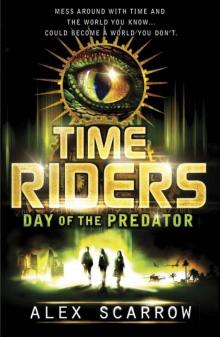 Day of the Predator
Day of the Predator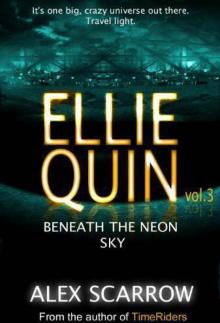 Ellie Quin Book 3: Beneath the Neon Sky
Ellie Quin Book 3: Beneath the Neon Sky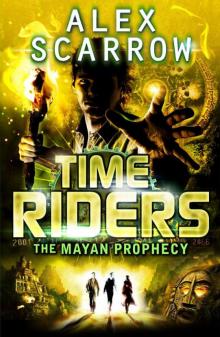 The Mayan Prophecy
The Mayan Prophecy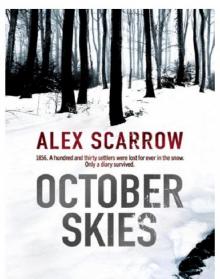 October Skies
October Skies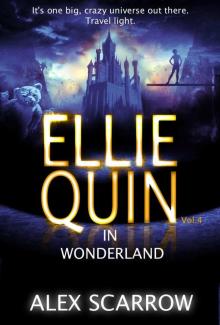 Ellie Quin Episode 4: Ellie Quin in WonderLand (The Ellie Quin Series)
Ellie Quin Episode 4: Ellie Quin in WonderLand (The Ellie Quin Series)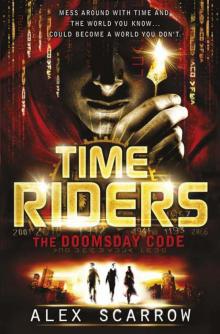 Time Riders
Time Riders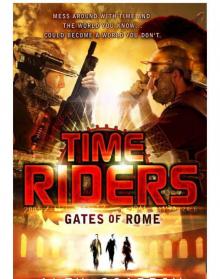 Gates of Rome
Gates of Rome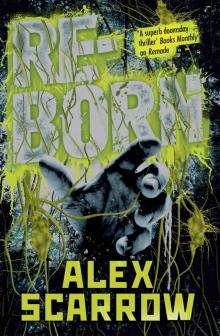 Reborn
Reborn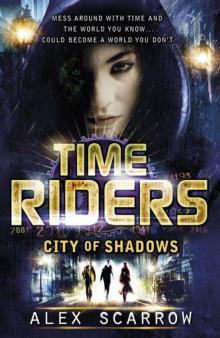 City of Shadows
City of Shadows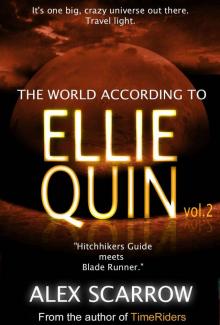 Ellie Quin Book 2: The World According to Ellie Quin (The Ellie Quin Series)
Ellie Quin Book 2: The World According to Ellie Quin (The Ellie Quin Series)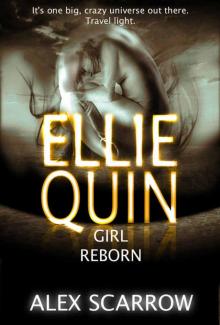 Ellie Quin Episode 5: A Girl Reborn
Ellie Quin Episode 5: A Girl Reborn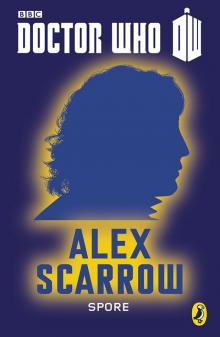 Spore
Spore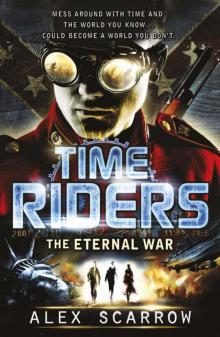 The Eternal War
The Eternal War Last Light
Last Light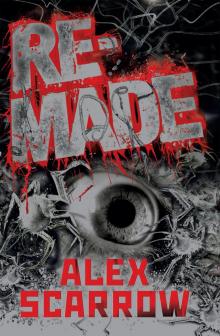 Remade
Remade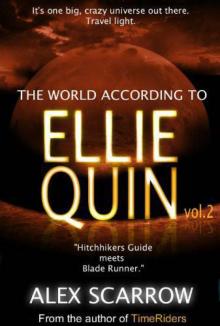 Ellie Quin Book 2: The World According to Ellie Quin
Ellie Quin Book 2: The World According to Ellie Quin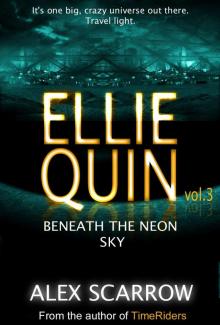 Ellie Quin Book 3: Beneath the Neon Sky (The Ellie Quin Series)
Ellie Quin Book 3: Beneath the Neon Sky (The Ellie Quin Series)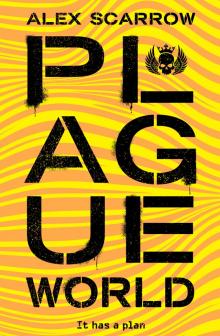 Plague World
Plague World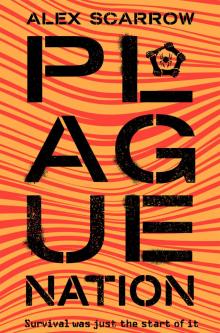 Plague Nation
Plague Nation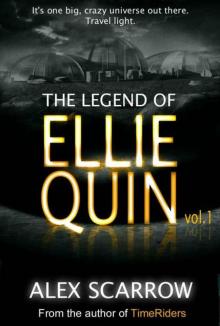 Ellie Quin Book 01: The Legend of Ellie Quin
Ellie Quin Book 01: The Legend of Ellie Quin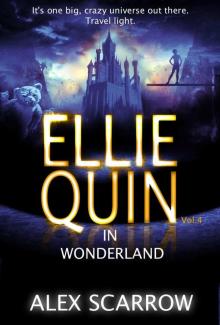 Ellie Quin - 04 - Ellie Quin in WonderLand
Ellie Quin - 04 - Ellie Quin in WonderLand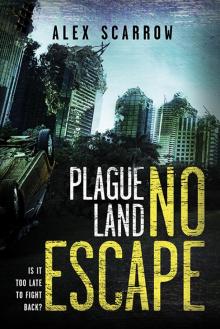 No Escape
No Escape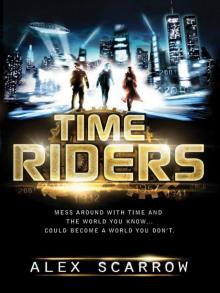 TimeRiders
TimeRiders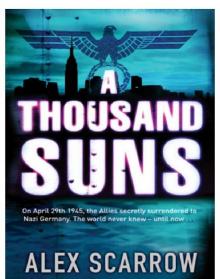 A Thousand Suns
A Thousand Suns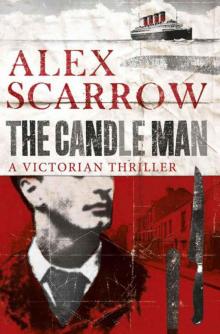 The Candle Man
The Candle Man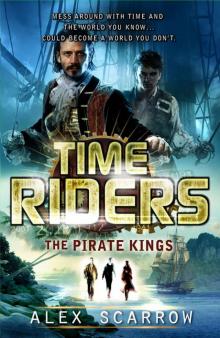 The Pirate Kings
The Pirate Kings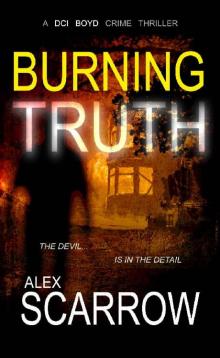 Burning Truth: An Edge-0f-The-Seat British Crime Thriller (DCI BOYD CRIME THRILLERS Book3) (DCI BOYD CRIME SERIES)
Burning Truth: An Edge-0f-The-Seat British Crime Thriller (DCI BOYD CRIME THRILLERS Book3) (DCI BOYD CRIME SERIES)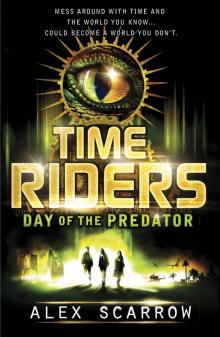 Day of the Predator tr-2
Day of the Predator tr-2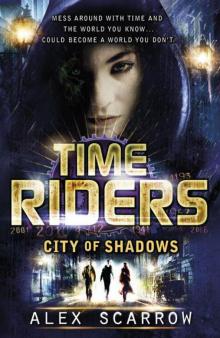 City of Shadows tr-6
City of Shadows tr-6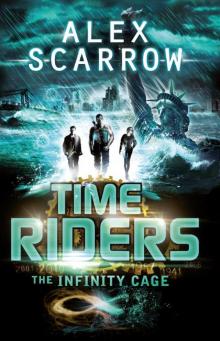 TimeRiders: The Infinity Cage (book 9)
TimeRiders: The Infinity Cage (book 9)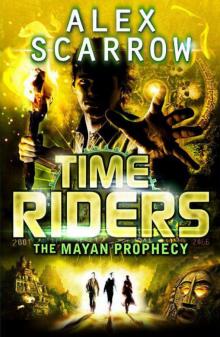 The mayan prophecy (Timeriders # 8)
The mayan prophecy (Timeriders # 8)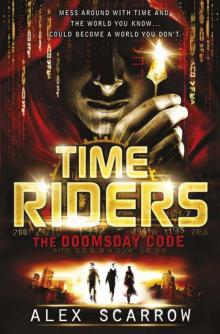 TimeRiders: The Doomsday Code (Book 3)
TimeRiders: The Doomsday Code (Book 3)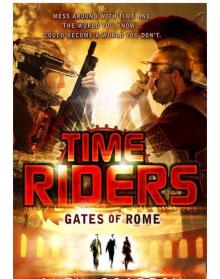 Gates of Rome tr-5
Gates of Rome tr-5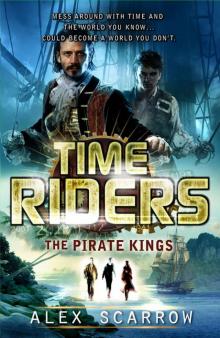 TimeRiders: The Pirate Kings (Book 7)
TimeRiders: The Pirate Kings (Book 7)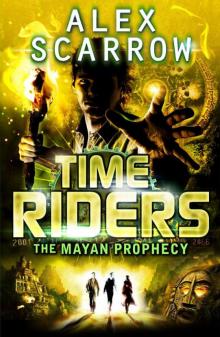 TimeRiders: The Mayan Prophecy (Book 8)
TimeRiders: The Mayan Prophecy (Book 8)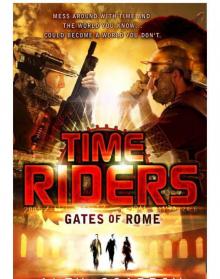 TimeRiders 05 - Gates of Rome
TimeRiders 05 - Gates of Rome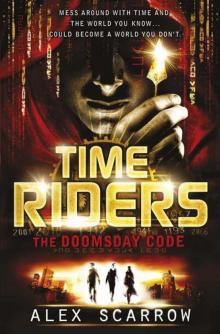 The Doomsday Code tr-3
The Doomsday Code tr-3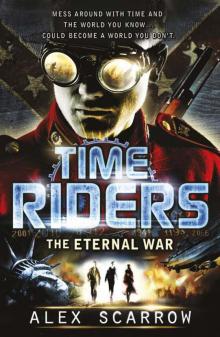 The Eternal War tr-4
The Eternal War tr-4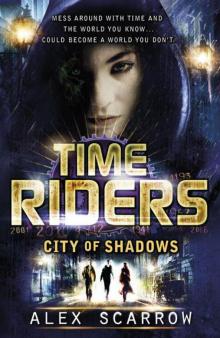 TimeRiders: City of Shadows (Book 6)
TimeRiders: City of Shadows (Book 6)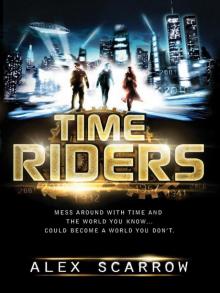 Time Riders tr-1
Time Riders tr-1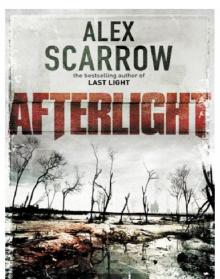 Afterlight
Afterlight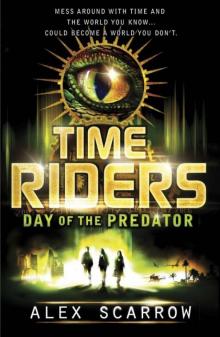 TimeRiders, Day of the Predator
TimeRiders, Day of the Predator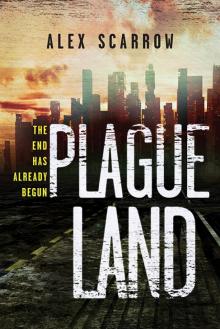 Plague Land Series, Book 1
Plague Land Series, Book 1